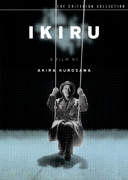I rented two films this week that coincidentally both center on older men and fractured relationships with their grown sons. Why do so many men and their fathers have such stormy relationships? Is it a testosterone thing? Of course it makes for good drama, though I am not sure men go out of their way to see films that remind them that their machismo gets in the way of a close bond. (We’ll leave the mother-daughter thing for a later time.) Ikiru 生きる, “To Live” (1952), a classic from Kurosawa, deals with a career bureaucrat finding out that he has only 6 months to live, who when he realizes that his own son is not there for him, goes out to find meaning elsewhere.  Riding Alone For Thousands of Miles 千里走单骑 (2005) by Zhang Yimou is about a Japanese fisherman finding out that his son who is dying of cancer doesn’t want to see him, so he goes to China to shoot a folk opera his son had planned on filming and ends up getting involved in another father’s and son’s relationship.
Riding Alone For Thousands of Miles 千里走单骑 (2005) by Zhang Yimou is about a Japanese fisherman finding out that his son who is dying of cancer doesn’t want to see him, so he goes to China to shoot a folk opera his son had planned on filming and ends up getting involved in another father’s and son’s relationship.
Riding Alone for Thousands of Miles is beautifully shot in the southern Chinese province of Yunnan with the otherworldly landscape heightening the strange displacement of the father in a country where he cannot communicate without a translator. In one scene, he is lost in what looks like a Chinese Grand Canyon, chasing after the young son of the opera singer he needs to film for his dying son. The opera singer just happens to be stuck in jail and is desperate to meet his son. The boy has never met his real father and is being forced to go meet him as a prerequisite to the Japanese father shooting the opera for his son. The Japanese father’s difficult interactions with the child remind him of his own strained relationship with his dying son. Since he can’t communicate with the little boy in his own language (the boy is Chinese and he is Japanese) he is forced to be loving and kind. It is sweet and funny and, yes, I did get weepy.
Ikiru is more about the father than the son who is so disinterested that he doesn’t even want to hear it when his father tries to tell him he is dying. The father has been a bureaucrat his whole adult life and is so unconnected to the world that his office mates have nicknamed him “The Mummy.” After getting his death sentence from the doctor, he wakes up to the waste of his life and decides to do one meaningful thing before he dies; he forces the powers-that-be to build a park for some desperately poor families who have been stuck in his bureaucratic hell.  But before he gets this epiphany, in a Felliniesque sequence, he descends into underworld Tokyo with a writer he meets in a restaurant, drinking and dancing and hanging out with the dregs of society. Not finding meaning there, he runs into a young woman, a former coworker, by chance and is so taken with her joy in life that he decides to find his own bliss before he dies. Returning to work, he finds the request from a group of mothers for a playground for their children and making it happen becomes his final act. I guess most of what I know of Kurosawa is from his samurai movies, but this one has such quiet dignity, I was blown away. Kurosawa based Ikiru on Tolstoy’s The Death of Ivan Ilyich. Time to head to the library.
But before he gets this epiphany, in a Felliniesque sequence, he descends into underworld Tokyo with a writer he meets in a restaurant, drinking and dancing and hanging out with the dregs of society. Not finding meaning there, he runs into a young woman, a former coworker, by chance and is so taken with her joy in life that he decides to find his own bliss before he dies. Returning to work, he finds the request from a group of mothers for a playground for their children and making it happen becomes his final act. I guess most of what I know of Kurosawa is from his samurai movies, but this one has such quiet dignity, I was blown away. Kurosawa based Ikiru on Tolstoy’s The Death of Ivan Ilyich. Time to head to the library.
I’d recommend both of these films to people who want to see well shot, well acted, well written, quiet, strong films. Of course, you have to be up for subtitles and in the case of Ikiru, black and white.

We’re in the US.